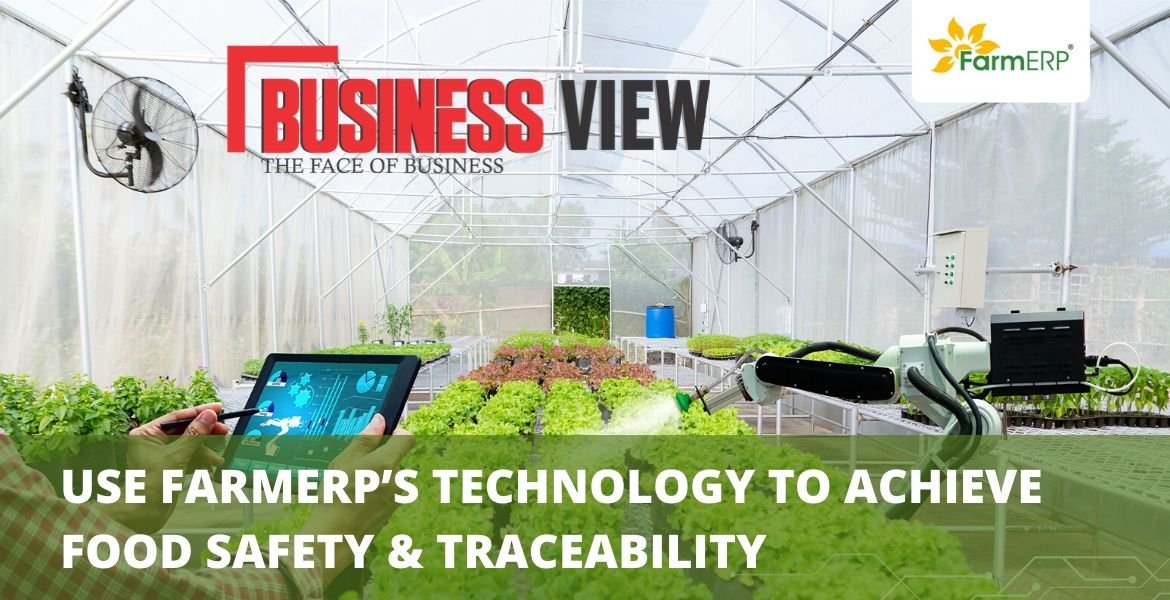One of the biggest sectors to be hit by the Covid-19 pandemic is the global food supply chain. Consumers have been growing to be more intelligent and carful in these testing times, something that will be carried forward even after the pandemic, in a way that demands to better the supply chain in the sector, which in today’s time has been eased with the help of technology.
Recently, there have been rising concerns regarding food traceability as well as environmental damage, depleting resources, increasing carbon footprint and water wastage in the agribusiness industry. Consumers are taking informed buying decisions that support businesses that ensure complete sustainability across their supply chain.
More than 93% of buyers in the consumer goods industry find it extremely important to get vital information about a food product, such as its ingredients and how it is made, before they make a purchase, according to a food transparency survey conducted by Label Insight and the Food Marketing Institute (FMI). It also shows that there was a dramatic increase in the number of consumers that switched from their regular food brands to the ones that offered end-to-end traceability of their products.
This indicates that the food safety concerns are not only growing among consumers, but it is also becoming a matter of concern for various stakeholders across the entire agricultural supply chain. FarmERP’s farm management system enables agribusinesses to leverage the cutting-edge technologies and a digital supply chain with data driven intelligent analytics to ensure the digitalization of their operations & offering farm-to-fork traceability of their agricultural products.
According to the FAO, efficient use of resources; direct action to conserve, protect and enhance natural resources; agriculture that supports farmers’ livelihoods; enhanced resilience of people and ecosystems and responsible and effective government mechanisms are the five principles of sustainable food and agriculture. Keeping these in mind, agriculture technology must enable safe food for consumers, more so post the pandemic.
One of the most trusted agriculture management platforms, FarmERPthat works towards helping agribusinesses enhance their product traceability and make their supply chains resilient with technology, also works towards achieving traceability for a post-pandemic cautious consumer. Here’s how:
Improve Quality and Brand Credibility by Offering Seed-to-Shelf Traceability
It has become an ultimately essential business parameter of digital farming to provide consumers with a digitally traceable, end-to-end journey of a product right from when it is a seed in the farm to a packaged product. Unique identifiers, such as QR codes, need to be linked to the product in order to provide customers with detailed information about agricultural practices followed and other processes performed during the production, along with safety checks the product goes through.
FarmERP’s high-tech farm management system dramatically simplifies this task for agribusinesses across the agricultural supply chain, as its traceability module automates this entire process for them. It enables all stakeholders to bypass the problems associated with traditional supply chains, as the system facilitates them to go digital with their supply chain operations and ensure the complete traceability of their products. This way, they can maintain brand credibility and offer food products that are only rich in quality, which can ultimately help them improve their consumer loyalty.
Embrace Transparency and Sustainability with Digitally Managed Supply Chains
With the rising importance of sustainability and a globally aware, eco-conscious consumer, it has become important for agribusiness to be environmentally resilient. The introduction of carbon footprint management, quality management, agricultural waste management and green supply chain network design has played a key role in driving agribusinesses to carry out sustainable farming practices. This calls for the need to make improvements in production methods to minimise harmful effects on the environment by realigning strategies has been crucial in building sustainability in agribusiness.
FarmERP’s farm management platform encourages and assists organizations to establish climate-resilient agricultural production cycles that focus on reducing greenhouse gas emissions, making efficient use of resources, and improving waste management systems.FarmERP’s farm management system feeds agribusinesses with intelligent farm analytics to mitigate their carbon footprint and optimize the consumption of natural resources. It is extremely important for agribusinesses to ensure that all their operations are less harmful to the environment, and FarmERP’s technology empowers them to manage sustainable supply chains digitally.
Promising Future of Supply Chain Traceability with Advanced Technologies
Food goes through multiple processes and places before it reaches a consumer’s plate, and it is important to make sure that it’s quality is maintained in every stage. The use of farm management systems integrated with next-generation technologies such as artificial intelligence, machine learning, and blockchain is constantly increasing in the agriculture industry. The effective utilization of artificial intelligence is crucial in determining the harvest date by taking into account the quality of soil as well as environmental factors. These estimates help agribusinesses to make sure that the crop produce is sufficient to meet consumer demand.
Additionally, it also assists in streamlining the agribusiness workflows, thereby cutting costs from supply chain infrastructure. Using these technologies with FarmERP’s farm management system could be beneficial to agribusinesses not only for ensuring end-to-end traceability of their products but also for enhancing the efficiency of farming activities, thus improving the results of business operations.
Traceability: Go Beyond Ingredients to Boost Consumer Experience
Traceability plays a key role in the supply chain by identifying unsafe products or farming activities before the products hit the market, and management of food quality and freshness can be ensured throughout the agricultural supply chain digitally by integrating important data and converting it into actionable insights.
FarmERP’s farm management system,thus, not only helps in ensuring public health but also maintains the credibility of the product by only providing products that comply with all health and safety standards, by this means making their business processes more efficient and boosting profitability, also keeping in mind the needs of the emerging cautious consumer.


